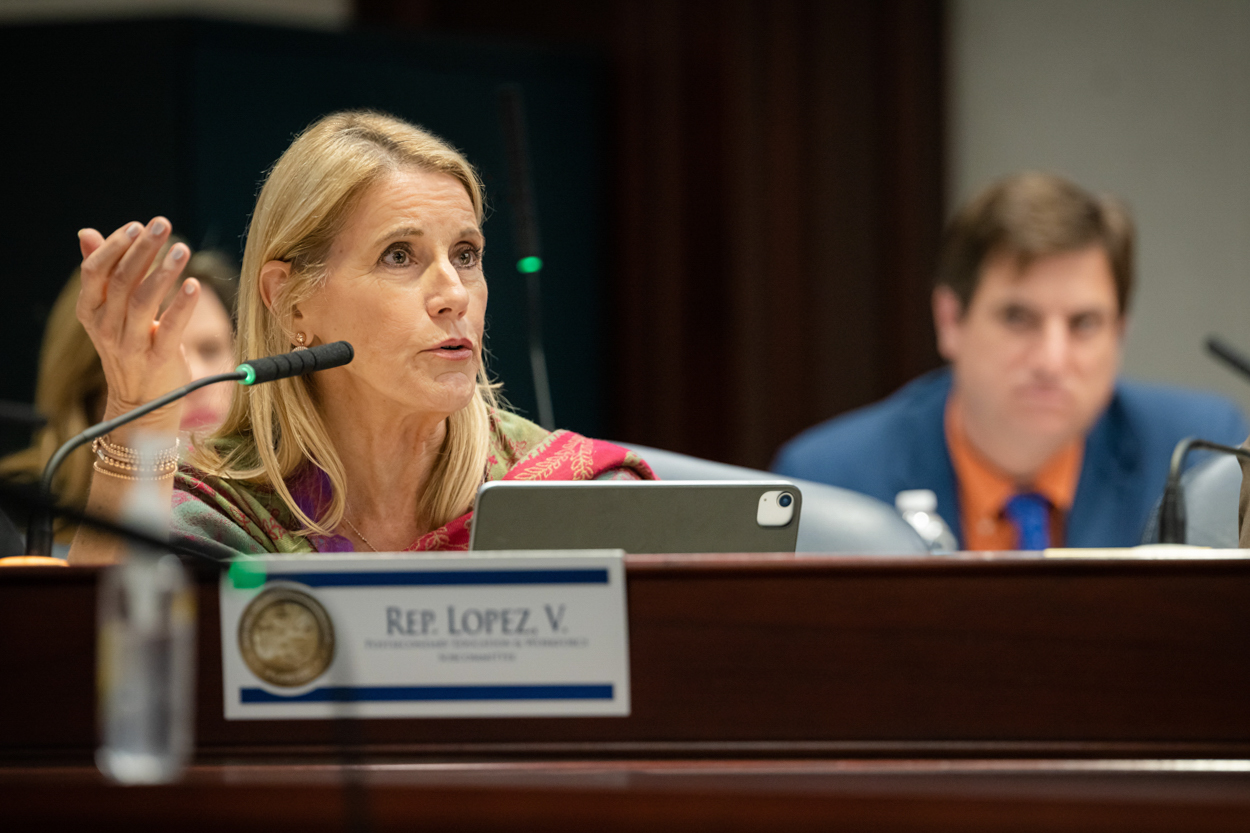Lawmakers in Tallahassee are preparing for the possibility that they may not have an agreed-upon budget by the end of their 60-day Legislative Session.
Passing a budget is mandated in the state constitution, and it’s the only thing that is. In order to finish on time, the House and Senate would have to have a budget on the desk — though not literally, they get a little wiggle room to print it — by Tuesday in order to meet the required 72-hour cooling off period before sending the budget to Gov. Ron DeSantis.
So what happens if that doesn’t happen?
The current fiscal year budget covers the state’s bills through June. A new budget, for the next fiscal year, must be in place by July 1 or else the state would face a government shutdown.
Simply put, there are two options to ensure that a shutdown, which would wreak havoc on state operations, doesn’t occur.
The first, and arguably most preferable option, is to extend the Session. To do that, lawmakers in the Senate must vote by a 3/5 majority among Senators present to add extra time.
The other option is to call a Special Session for lawmakers to return at a later date, likely in June.
There are three ways to call a Special Session. The Governor could call it, or the Legislature could do so with a joint proclamation from the House Speaker and Senate President. The third option hasn’t happened in modern history, and involves rank-and-file lawmakers petitioning for one. It’s an exceedingly unlikely route.
In calling a Session, leadership or the Governor must specify a date, a length of the Session, and a subject matter to be addressed. If Speaker Daniel Perez and Senate President Ben Albritton called a Special Session, the Governor could still add to the agenda. That’s important considering the ongoing rift between the legislative and executive branches, because it would allow DeSantis to force lawmakers to reconsider any priority that may have died when then hankie dropped, signifying Sine Die.
Which of those routes lawmakers might take is an open question, but according to sources with knowledge of the process, it would likely depend on how close the House and Senate were to reconciliation on the budget.
If they’re close, it’s likely that lawmakers would approve extending the Session to finish the necessary business of passing a budget. If they are still far from consensus, it is possible that would cause lawmakers to prefer a break before coming back for a Special Session.
Either way, it’ll cost taxpayers.
There is no hard-and-fast number on how much it costs to extend Session or call a Special, but estimates vary around $40,000 or $50,000 per day.
Whether extra time is needed is still unknown, but it’s looking increasingly possible
As of Wednesday afternoon, the House had still not yet provided its first budget offer to the Senate, though Senate budget chief Ed Hooper told Florida Politics on Tuesday that he was expecting the House’s initial offer that afternoon, signaling work on it is nearing completion.
But Hooper also said that while he expected a “serious” offer from the House, he acknowledged that it was likely to still be close to $3 billion different from the Senate’s version, which is a lot of daylight to hash out between the chambers.
Sources with knowledge of past budget processes tell Florida Politics that seven days is considered a quick turnaround, while the back-and-forth has, in recent years, taken as much as two weeks. With Tuesday’s deadline for a completed product less than a week away, time does not appear on lawmakers’ side.
And that all comes down to allocations — spending buckets for things like education, health care and transportation. Once allocations are agreed upon between the two chambers, it’s a signal that lawmakers are getting close to reconciliation and a final budget product ready to be sent to the Governor.
It’s also worth noting that the Tuesday deadline to adjourn on time is not really even the deadline for lawmakers to reach consensus. Staff members require at least 24 hours, preferably 48, to transfer the budget from lines on a spreadsheet into proviso that has been checked and double-checked. That bumps the shot clock up to Monday at the latest — just five days away.
Those allocations may be the metric to watch. If budget chiefs get there in the next day or two, it’s likely that even if extra time is needed, it will be via an extended Session, not a Special Session. If they don’t, a Special Session might be on the horizon.
Post Views: 0

 Politics8 years ago
Politics8 years ago
 Entertainment8 years ago
Entertainment8 years ago
 Entertainment8 years ago
Entertainment8 years ago
 Entertainment8 years ago
Entertainment8 years ago
 Tech8 years ago
Tech8 years ago
 Tech8 years ago
Tech8 years ago
 Tech8 years ago
Tech8 years ago
 Tech8 years ago
Tech8 years ago











